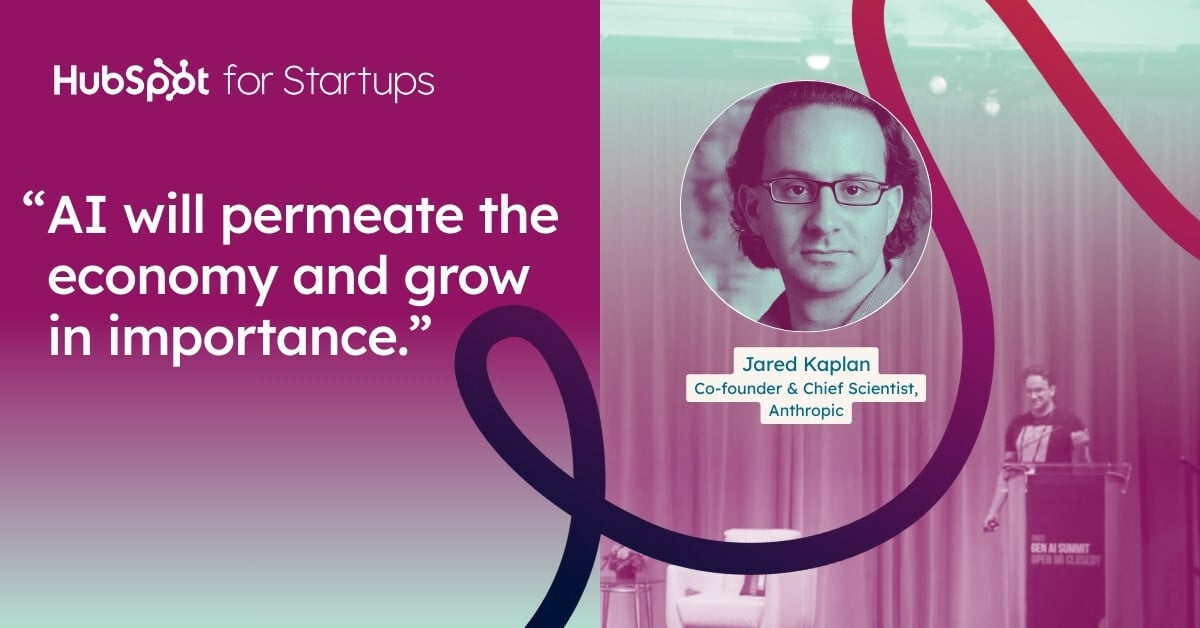The Future of AI: Insights from Anthropic's Co-founder Jared Kaplan
Anthropic's Jared Kaplan explains the exponential growth of AI capabilities, Constitutional AI's advantages, and how Claude is transforming business workflows.

Anthropic's Jared Kaplan explains the exponential growth of AI capabilities, Constitutional AI's advantages, and how Claude is transforming business workflows.

AI is evolving at a breathtaking pace, but what's driving this progress, and what does it mean for startups? At the HubSpot for Startups annual AI Summit in San Francisco, Jared Kaplan, Co-founder and Chief Scientist of Anthropic, shared valuable insights on the exponential growth of AI capabilities and Anthropic's approach to building more reliable AI systems.
Kaplan, who leads the team that built Claude, Anthropic's AI assistant, outlined two primary factors propelling AI advancement:
"These are really driving what you see that's possible this year, that wasn't possible a couple years ago, and why I think the future is very interesting," Kaplan explained during his keynote.
Looking at the history of AI development, Kaplan highlighted a remarkable transformation:
This rapid progression is powered by what Kaplan calls "scaling laws"—precise scientific discoveries showing how AI capabilities improve as compute, data, and model size increase.
Despite this impressive progress, reliability remains a critical challenge. According to Kaplan, when Anthropic surveys customers, "the number one thing that people would like to see improve about these AI systems is to be more honest, to be more factually accurate, to not hallucinate, to be able to be trusted."
To address these concerns, Anthropic developed Claude with a focus on:
Kaplan provided insights into Anthropic's Constitutional AI methodology, which represents a significant shift from traditional reinforcement learning from human preferences (RLHF):
This self-evaluation approach offers several advantages:
Kaplan highlighted several ways businesses are already leveraging Claude's capabilities:
One impressive demonstration showed how Claude, when given Langchain's complete documentation, could write and explain code to use Langchain with Claude—despite not having prior knowledge of Langchain.
Finally, Kaplan emphasized Anthropic's focus on usability factors like speed, noting that Claude Instant can generate nearly 500 characters per second—critical for applications where latency matters.
Through partnerships with companies like Amazon Bedrock, Anthropic aims to deploy Claude at even greater scale while ensuring privacy and safety of customer data.
AI Disclaimer: The insights shared in this video or audio were initially distilled through advanced AI summarization technologies, with subsequent refinements made by the writer and our editorial team to ensure clarity and veracity.
Would you like full access to the complete AI Summit video library, featuring over ten hours of educational content and insights? Click below.
